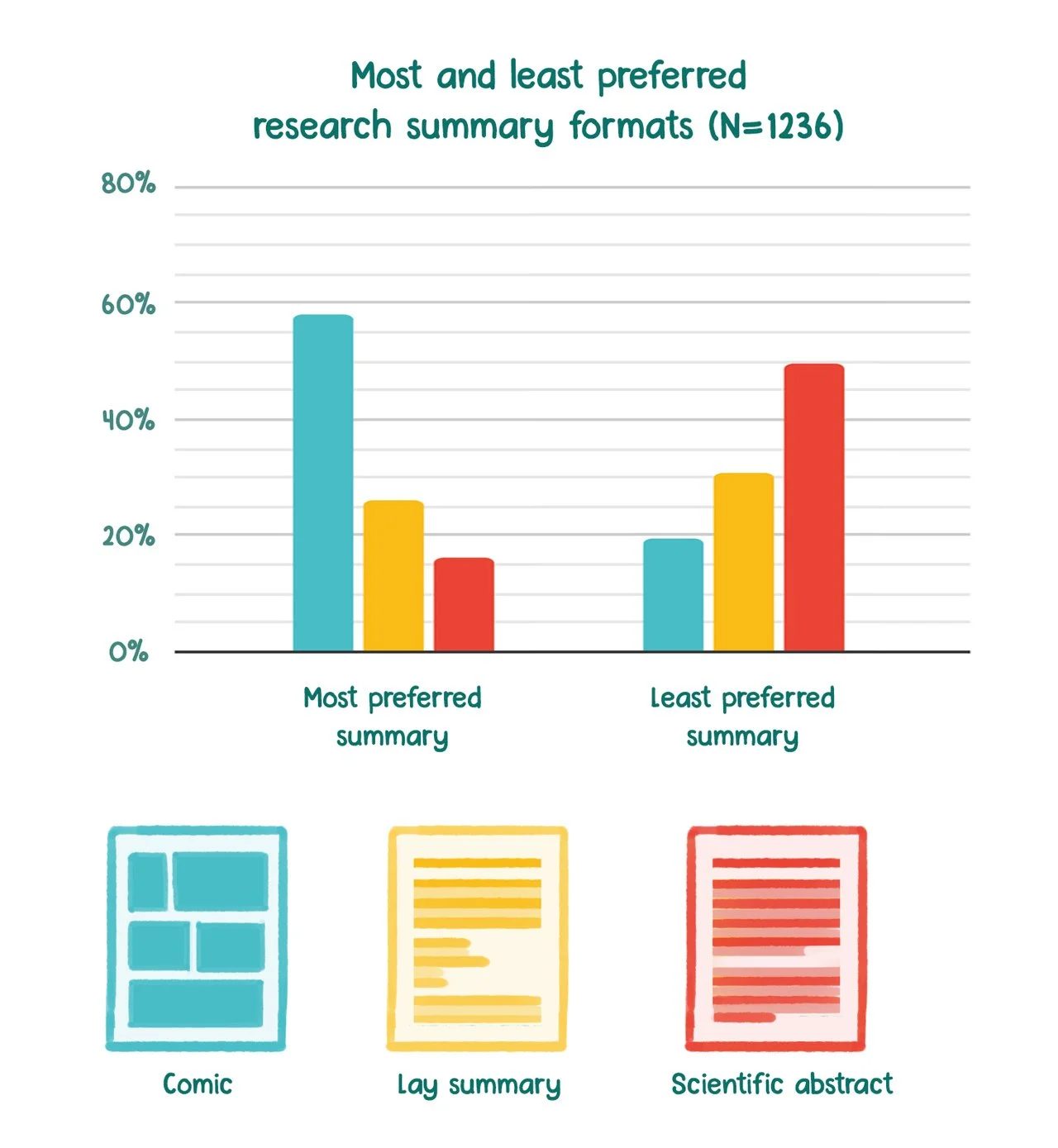Could comics be the best way to share healthcare research?
For the past few years, I have been investigating how comics can be used to support healthcare and research. In one study, I looked at different ways of sharing research results with those who took part. Healthcare research is usually published in academic journals and coded in scientific language - a form that can be hard to find and understand for the non-scientist. Research guidance encourages that scientists share research results publicly in an accessible form, but there is little guidance on what form that should be, or research to inform this. Comics, which weave images and text in narratives, could fulfill many of the recommendations in science communication advice. I certainly think so from my biased perspective as an artist passionate about scicomm, and with so many great examples around!
Our team invited participants of a previous pandemic study to take part in an online survey which presented respondents with the results in three forms: a scientific summary (the published abstract), a lay text summary (which was more accessibly written with scientific terms avoided or explained), and a comic summary (based on the lay summary). This was done as a randomised crossover study, meaning that every participant saw all three summaries in a random order (to counter any effects of the order they were seen). By doing this, respondents could compare all three summaries, and rank their most and least preferred version.
1236 respondents took part. For the most preferred summary, the comic was chosen by 716 (58%), lay summary by 321 (26%), and scientific abstract by 199 (16%) respondents. For the least preferred summary the scientific abstract was chosen by 614 (50%), lay summary by 380 (29%) and comic by 242 (20%). Key reasons the majority preferred the comic over the others included finding this easier to read and understand, more enjoyable, and more satisfactory as a medium of communication.
We tried to break the data down by gender, age group, ethnicity, and familiarity with scientific language, but the same pattern was observed each time.
The goal of this study was to help determine whether a comic could be appropriate and effective as a means to share research, and with whom. The results were clearly supportive, and while this isn’t definitive proof of them being the right choice in every situation, with over a thousand responses and a clear ‘winner’ it makes a strong case for using the medium to share science with study participants and the public.
Thank you / tēnā korua to all who took part in the design, conduct, analysis, write up, peer-review, and most importantly of all, all the mahi of the kind volunteers who made these studies possible.
You can read the comic here, the scientific publication here, or for those without academic access, via this Green Open Access PDF.



